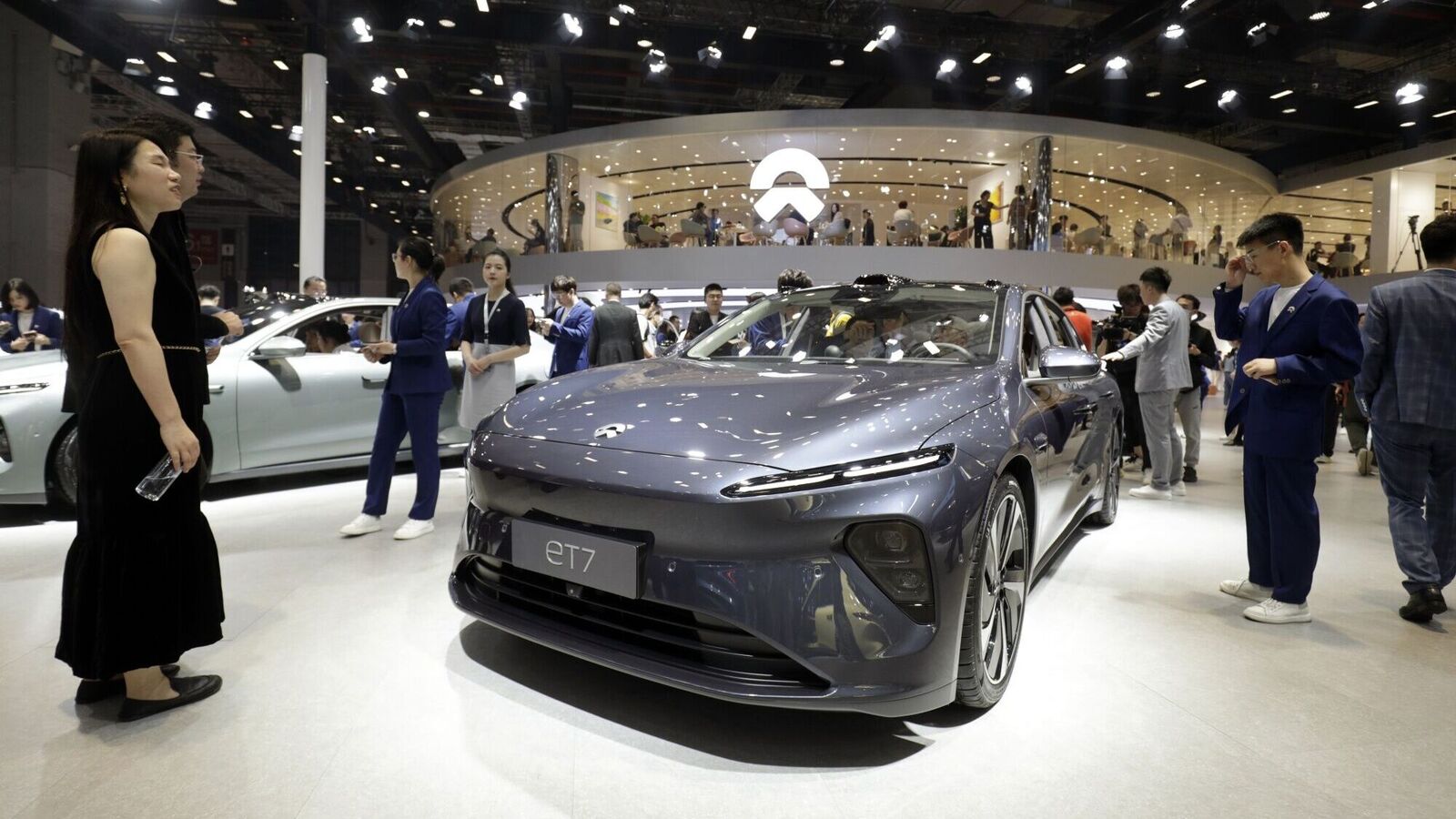Elliot Richards, an EV expert, joked that Shanghai has proven that Chinese brands “can compete with all the traditional automakers in every way – performance, quality, comfort, there’s nothing they can’t do.” Arrived”. Watch German men wandering around”.
“I think this show marks the end of the internal combustion engine and the beginning of the era of electric vehicles,” he added.
Electric car companies are well aware that they are approaching their fossil fuel-fueled predecessors.
“We see high-end gasoline cars like BMW, Mercedes-Benz and Audi as our main competitors,” William Li, chief executive of “Chinese Tesla” NIO, told AFP.
According to the China Association of Automobile Manufacturers, EVs will account for a quarter of China’s auto sales by 2022, up 94% year-on-year.
Despite the slump in the global auto industry, Li said he thinks EVs’ market share in China could increase to more than 40 percent this year.
In Shanghai, dozens of new models from automakers old and new were on display.
“The future is here,” Mike Johnstone, an executive at British luxury brand Lotus, told AFP.
“(In China) electrification products are flooding, and it is changing the whole market.”
“Headstart”
China has devoted significant resources to the industry.
“They didn’t develop a gasoline engine because they couldn’t compete with the rest of the world,” Richards said.
“So they think: ‘(With electric cars) we can get ahead of everyone else’.”
The country has invested heavily in related technologies since the early 2000s.
“It’s rooted in the nature of the country’s economic system: The Chinese government is very good at focusing resources on the industries it wants to grow,” Zeyi Yang wrote in MIT Technology Review.
Central and local authorities poured billions into subsidies and tax breaks, and allocated public transport contracts to electric vehicle companies.
The supporting infrastructure has also been built—the government says there are now more than 5.8 million charging points in China.
Guangdong province alone has about three times as many public chargers as the entire United States, according to Bloomberg data.
“In general, there are still many preferential policies for the production and sales of electric vehicles…” Nio’s Li said, citing the exemption of expensive license fees in some cities as an example.
innovation ecosystem
These policies also apply to foreign brands.
The tactic has helped lure industry leader Tesla to Chinese shores, boosting the industry’s reputation and sparking further competition.
Today, more than 94 brands offer more than 300 models in the Chinese market, “the most dynamic in the world”, according to Counterpoint Research.
Some are breaking down the cash barriers that put EVs beyond the financial reach of the average consumer.
In Shanghai, China’s Geely showed off its boxy Panda Minis — including a bright yellow one with the words “what the duck” emblazoned on the side.
Less expensive versions cost around $5,800.
In the future, home-grown technology may drive down prices even further.
Battery giant CATL has developed a battery that uses sodium ions instead of lithium ions, which are more abundant and cheaper.
Just before the opening of the exhibition, CATL announced that these batteries will be used in domestic brand Chery cars.
overseas ripples
This is all closely watched by foreign competitors.
Brands in the Chinese market are “setting the benchmark” for other brands, says Lotus’ Johnstone.
And China’s electric car companies have begun to enter overseas.
The largest of these, BYD, set up shop in Norway and then continued to expand, with others following suit.
Spiros Fotinos, European chief executive of Geely-owned Zeekr, told AFP that the technological sophistication of electric vehicles made in China was fighting stereotypes about quality that foreign consumers might harbor.
“Consumers are seeing a lot of innovative safety technology, and really advanced driver assistance systems,” he said.
However, Richards said the success of Chinese carmakers in the West was not a “certainty” because they had to adapt to the market.
“For example, karaoke machines in cars — very popular in China, not so popular in Europe,” he said.
Johnstone insisted that automakers with the “tradition and history” that are popular in the electric age will remain competitive.
“Brands that have been around for years … will continue to be around in the future,” he said.
First published date: April 24, 2023 at 09:14 AM CST
https://auto.hindustantimes.com/auto/electric-vehicles/chinas-ev-dominance-takes-centre-stage-at-the-shanghai-auto-show-41682307560254.html
